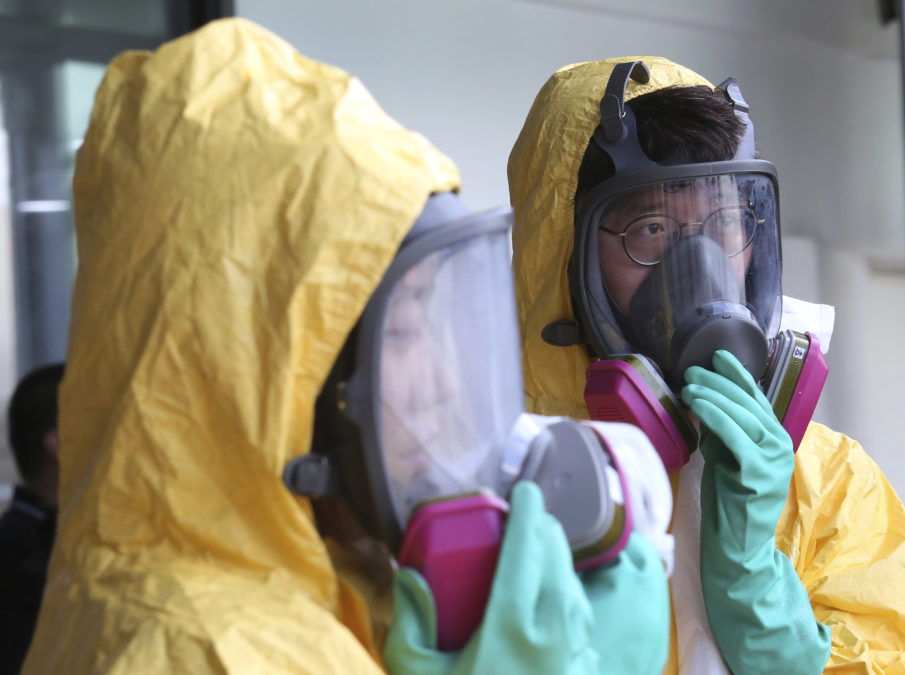According to reports out of South Korea, one of the North Korean soldiers who defected to South Korea in recent months has anthrax antibodies in his system. Although this report currently comes from a medical official that has requested anonymity, confirmation of this claim could prove that North Korea possesses a stockpile of the biological agent for use as a weapon.
South Korean intelligence reports have long asserted that Kim Jong Un’s North Korean regime possesses one of, if not the, largest stockpile of banned chemical and biological agents, and recent reports have even indicated that North Korea may be working to develop a way in which to deliver biological weapons such as anthrax through their long-range ballistic missile program.
Despite statements from numerous international intelligence agencies that North Korea indeed develops and possesses chemical and biological weapons, Kim’s regime has been characteristically dismissive of such claims. Even when Kim Jong Un’s half-brother, Kim Jong Nam, was killed using a chemical agent known as VX in an assassination plot that implicated a number of North Korean citizens and officials, the nation continued to deny their involvement, as well as their possession of the chemical weapon.
Anthrax itself is a particularly potent biological agent, capable of killing an estimated 80% of those exposed to it if not properly treated. The presence of anthrax antibodies in at least one of the defected North Korean soldiers can be as a result of prolonged exposure to low levels of the agent, or more likely, an intentional vaccination.
The only anthrax vaccination available within the United States requires a complex six-dose procedure spread out over weeks, and only remains viable in the animals it was tested on for a span of 1-2 years (there are not currently any conclusive studies regarding long-term efficacy in human trials). The labor involved and short-term efficacy of the American anthrax vaccine can be assumed to be similar to that of a North Korean variant – meaning the fiscally hindered nation must be allocating a fair amount of its limited resources to the vaccination effort if there is one.
Seeing as neither South Korean nor American troops employ combat strategies that include biological warfare (indeed, South Korea isn’t expected to even begin fielding an anthrax vaccine for its troops until the end of 2019), reasonable deductive leaps establish the following if and then statement: if North Korea is devoting resources to vaccinating their troops against anthrax, then it is likely because they intend to use the biological agent as a weapon themselves if war were to break out on the Korean peninsula.
Of course, North Korea continues to deny their possession of chemical or biological weapons, issuing the following statement via the state-owned media outlet, KCNA:
As a state party to the Biological Weapons Convention (BWC), [North Korea] maintains its consistent stand to oppose development, manufacture, stockpiling and possession of biological weapons,” the KCNA wrote, referencing the 1972 United Nations ban on certain biological weapons. “The more the US clings to the anti-[North Korea] stifling move…the more hardened the determination of our entire military personnel and people to take revenge will be.”
Image courtesy of the Associated Press
Already have an account? Sign In
Two ways to continue to read this article.
Subscribe
$1.99
every 4 weeks
- Unlimited access to all articles
- Support independent journalism
- Ad-free reading experience
Subscribe Now
Recurring Monthly. Cancel Anytime.











COMMENTS